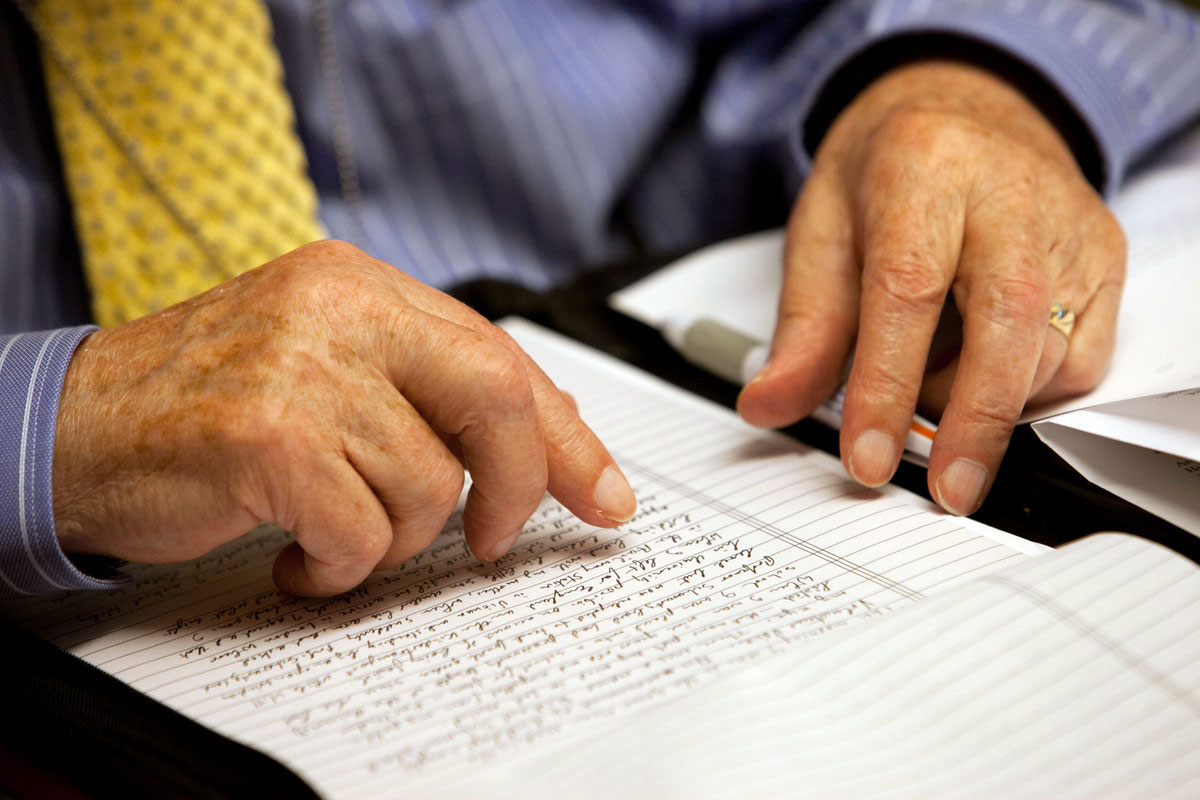Read reflections and testimonies written by Holocaust survivors in their own words.
Blog Home > hiding
-
Separation
September 17, 2006
After the night of broken glass, when the Nazis organized and carried out a pogrom of anti-Jewish violence, my parents—like most Jews in Germany—wanted to leave. There was no more waiting to find out if events such as Kristallnacht would cease, or if life would ever be normal again for all of us. Our first choice was to come to the United States, where we had cousins living in New York. They were most anxious to assist us by sending us tickets for the voyage and helping us settle in this new land. However, like most countries, the United States had a quota which had been established many years before and, therefore, we found it impossible to immigrate.
-
Paranka
September 17, 2006
It was midwinter of 1943. I was on top of a mound of hay inside a barn, trying to stay warm, when a hand removed the hay covering my upper body. I found myself staring at a young woman with a look of surprise on her face.
-
The Train Station
September 17, 2006
After liberation in 1945, we started a new daily routine. We had regular mealtimes, but food was still scarce. My brother and I did not realize that it was normal to eat three times a day. For us, every time we sat down to eat was a surprise.
-
Hunger Winter
September 17, 2006
It was cold, bitter cold. I was only two and a half years old. My feet itched and hurt and then itched again—the result of chronic cold feet. The attic where my family was hiding had no heating, only a very small camping-like stove that was only used to heat water or some food, if we had it. It was the coldest winter in a long time. The southern part of the Netherlands was already liberated. We were in Amsterdam, the northern part. We were isolated and it was very difficult to get food, oil, or wood to heat. Trees were chopped down clandestinely in the night. Punishment for that action would be fierce.
-
Selma
September 17, 2006
Just after the war started in the Netherlands in 1940, my parents moved to a house on a quiet tree-lined street in the town of Haarlem, about 15 miles to the west of Amsterdam. Life was as normal as you could expect under the circumstances: wartime, occupation, the persecution of Jews.
-
The Judgement, in Two Parts
September 17, 2006
With disbelief we watched the young men, our soldiers, looking tired, in deplorable condition, many wounded, returning defeated from the frontline after only a few days of fighting.
-
For a Rainy Day (Men Zol Nit Bedarfen)
September 18, 2005
I still hoped that Mother would show up in one of the forests that abounded in that area of Poland. It was autumn of 1942. At that time I believed that this nightmare was temporary, and that any day I would find Mama. Had I thought differently, I would have given up.
-
If Rivers Could Speak
August 22, 2004
I was in the water up to my neck. The water was cold. We were hiding in the bulrushes and I knew we could not move. It was very quiet and any sound would give us away. Mama gave me some soggy bread. It tasted awful, but she insisted I had to eat it to keep strong.
-
Erika’s Story
August 22, 2004
I remember the time we left Russia and we fled to Poland. We had to leave Kiev in a hurry in 1944. My friend Monika told me that the NKVD secret police were coming to get my sister and the lady we were with, Mrs. Dirnfeld. Monika didn’t know that Beatrice was my sister. I never talked about my sister and who she was, or the lady, Mrs. Dirnfeld.
-
The Light Blue Ensemble
September 21, 2003
Every time Helena, or Heleneke, as she was called by everyone in the family, wore her light blue ensemble, I was filled with envy. I loved the dress and the cape she wore over it. My favorite part of the dress was the skirt, which fluttered up and outward when Heleneke twirled round and round. When she wore the cape she looked regal, like a real princess. Heleneke had many beautiful dresses; I did not.


